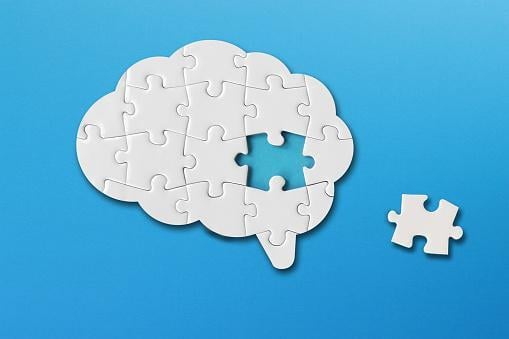
Sleep improves memory, but...
Can Sleep Prevent Alzheimer's?
Research continues to shine hope on the possibility that increased time spent in "Deep Sleep" may help to prevent Alzheimer's. While we know adults need 7-9 hours of sleep each night, it’s the quality rather than the quantity, that most impacts sleep’s ability to improve memory function.
During the stage known as deep sleep, the body performs a number of restorative processes. In the brain, the restoration process is accomplished by flushing out toxic levels of tau protein and beta-amyloid plaques which are known to increase the risk of Alzheimer’s Disease; this cleansing action boosts the brain’s ability to consolidate and preserve memories.
Key to understanding deep sleep's relationship to memory, are three questions: What is deep sleep? Why do we need it?And ultimately... What do you need to do to get more of it?
Defining Deep Sleep
Sleep occurs in a rhythmic cycle that alternately repeats between light sleep and deep sleep until a person awakens. In deep sleep, which accounts for approximately 25% of total sleep time, the cerebral cortex is fully resting - this allows our bodies to produce antibodies and increase resistance to illness.
During this deep sleep stage, also referred to as “golden sleep,” the brain additionally processes the information gathered through your daily interactions with people, places and things. When you lack sufficient regular intervals of deep sleep, the brain is unable to convert these processed experiences to your memory.
Deep Sleep Matters
Whether or not the claim can be made that sleep can prevent Alzheimer's, it is clear that sleep provides a multitude of restorative benefits to both body and brain. Deep sleep, specifically, is so important to the consolidation of new memories that it is often referred to as "sleep-dependent memory processing." Therefore, individuals with sleep disorders such as those suffering from insomnia, often suffer additionally from impaired memory consolidation and can find it difficult to perform memory tasks efficiently upon waking.
While there’s no specifically established sleep requirement, we do know we tend to get less deep sleep as we age – people 30 years old may average 2 hours per night while older individuals may only get half an hour; so if you’re on the older side, it may be time to take a more active role in getting the sleep you need. Consider deep sleep a priority – improving your sleep habits could be the help your brain needs to preserve your precious memories.
Deep Sleep Planning
Most importantly, ensure you’re getting adequate total sleep time. Getting more sleep generally may help increase your time spent in deep sleep, so make a plan to get more sleep and stick with the plan.
Keep in mind, a good sleep strategy begins earlier than bedtime. Get plenty of exercise during the day; 20-30 minutes is good—just not too close to lights-out. Also have a cutoff time for caffeine, nicotine and alcohol as all of these can interfere with getting good sleep.
Eating for wellness is always a good health practice and this applies to bedtime snacks. Here are some sleep-promoting food options, that can help you sleep better:
- Avocados, Bananas, Kiwis
- Chickpeas, Eggs, Walnuts
- Chamomile Tea, Cocoa, Milk &Honey
For a super-sleep-boost, have some mango slices before bed—they’re not only known to promote sleep but provide many other health benefits, including enhanced memory function.
A few more tips for getting the deep sleep you need...
- Try a bedtime schedule where you go to sleep and wake up at regular times each day.
- Make your sleep space inviting; try new pillows, candles or aromatherapy
- Take a hot bath or a sauna in the evening
- Decrease bright lights, blue light (television, tablet, phone), and loud noises so you can relax.
- Decompress with a relaxing bedtime routine; try listening to music, or a soothing sound like pink noise to help calm your mind and prepare for sleep
And if you still can't sleep?
Whatever you do, don’t lay in bed tossing and turning; try getting up and performing a light activity (like reading) until you feel tired enough to sleep.
If nothing you try gets you on the road to better sleep, consider making an appointment to see a health professional so you can sleep better, feel better... and keep your memories intact.

































